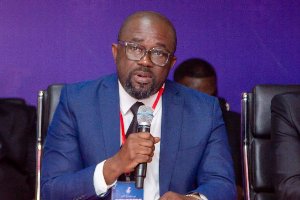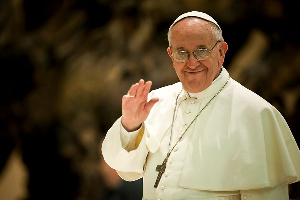Having listened to former president John Agyekum Kufuor and followed his pronouncements on visionary leadership in recent times, it is difficult not to revisit the ineptitude of his presidency and bring to the fore the established fact that as a president he was ideologically challenged. The policy of property-owning democracy provides just one of the shaky pictures of Kufuor’s leadership and vision.
When Archie Noel Skelton mooted the idea of property-owning democracy nearly a century ago, the aim was for wealth and enterprise to manifest at the grassroots of the British political economy. The modern-day adoption and manifestation of the ideology was under Margaret Thatcher in the 1980s, mainly to tackle the housing deficit whiles instigating a wealth base for middle to lower classes of the British populace. But Thatcher’s biggest mistake was that she failed to undertake or even encourage investment in the housing sector. So whereas new household formation rates increased there was no deliberate property-building policy to match or surpass the attendant demand. A record housing bubble thus ensued. The Blair-Brown era perpetuated this and enjoyed the capital gains taxes accruing from the unrealistic property prices.
John Kufuor perfidiously adopted this policy of property-owning democracy without thorough scrutiny of its applicability in the Ghanaian economic context. At Ghana’s stage of development, the worst thing a half-patriotic politician could do was to adopt a policy that failed in an even developed economy, hook line and sinker. The best option if faced with an appealing model is to design a hybrid that suits your socio-economic context. But that hybrid is only possible if you understand the policy in the first place. From hind-sight it is clear Kufuor’s government was in a wonderland in this regard.
Again, if property and business ownership was to thrive it should have taken place in an environment in which only the most willing, proven and capable hands took charge. By 2001 the private sector which concentrated in the Accra-Tema-Kumasi areas and survived on non-innovative import based economic activities had shown their inability to partner government in devolving and triggering a prosperous political economy beyond Accra. Kufuor had a rare opportunity to step outside this cocoon and show the way. Many observers nervously hoped that President Kufuor would chart a new course for Ghana’s grassroots private sector beyond Accra; and inspire an economy that would not only transcend political patronage and tribe but also engender widespread economic growth.
But in reality, the Kufuor brand of property-owning democracy proved to be no more than a fanatic adoption of a failed Thatcherite dogma. If he was genuinely adept with that policy under Thatcher it would have been clear to him that for a property-owning democracy to work, it must be pursued, pari pasu, with a property-building policy. This implies a massive investment in housing, roads, railways and communications infrastructure. And as a result of the private sector inertia at becoming the engine of growth, nobody needed to tell Kufuor that his government needed to lead the way. By virtue of his policy piffle, not only did Kufuor vividly display his lack of understanding of the Ghanaian political economy but also that he showed a dangerous lack of intellectual depth. In practice all activities by Kufuor to lead Ghana economically could be described as placement and selfish networking of friends, family and party cronies. In Greek terms it was a kakistocratic economic leadership.
During the eight years of his rule, no single housing unit or project was completed. The boldest attempt at making a scratch on the huge housing deficit besetting the country was the Affordable Housing Scheme to provide 100,000 housing units at affordable prices. The target group on paper was lower and middle-income civil and public servants. But before that project could reach anywhere off the ground the units were shared like war spoils. Kufuor’s office alone was allocated 51 units with 19 going to his vice. Apart from the ideological bankruptcy, if this was not selfish greed what else could it be?
The creation of a novel Presidential Special Initiatives was seen as the best foot put forward by Kufuor. It was hoped that this portfolio would open up the hinterland through property-building special initiatives. But it only proved to be brilliant in form but lame in substance. If that ministry did anything significant to the ordinary Ghanaian, it was the use of state authority to foist two unscrupulous but failed loans on them. But for the scrutiny of civil society and the opposition in parliament at the time, IFC and CNTCI frauds would have been noosed around our necks.
An often flagged off-shoot of the neo-liberal economic propaganda is the assertion that in free societies with property rights and smaller state, merit leads to the recruitment of the best individuals for the common good of society. What they dishonestly fail to state is that in practice, meritocracy tends to be replaced with nepotism and cronyism. Power and wealth thus end up dangerously coalescing in a few families. As the evidence from the known lists of people who benefited from Government bungalows, lands, and the affordable housing project showed, access to and ownership of state property was based on kinship, close ‘tribesmanship’ and party membership. To Kufuor, property-owning democracy meant the ‘dongomi’ sales of tax-payer property to himself, family, friends, close tribesmen and cronies. The result of this was that thousands of state assets were transferred to these people under dubious contracts. The beneficiaries did not necessarily show proof or have a clear track record of operating assets of that quality to increase employment opportunities and further generate wealth. Their merit was affiliation.
Kufuor likes to be touted as a modern visionary African neo-liberal politician. But in practice he was a pretender who defied the so-called meritocratic underpinnings of the neo-liberal ideology and was nepotistic at the core. If any politician is to stand tall today and lay claim to having been visionary for Africa and Africans, that politician is certainly not John Agyekum Kufuor. For, not only did he lack depth but also that his perfidy better defines his track record.
By:
Kofi Adoli,
London.
amoulanga@hotmail.com
Opinions of Wednesday, 2 November 2011
Columnist: Adoli, Kofi














